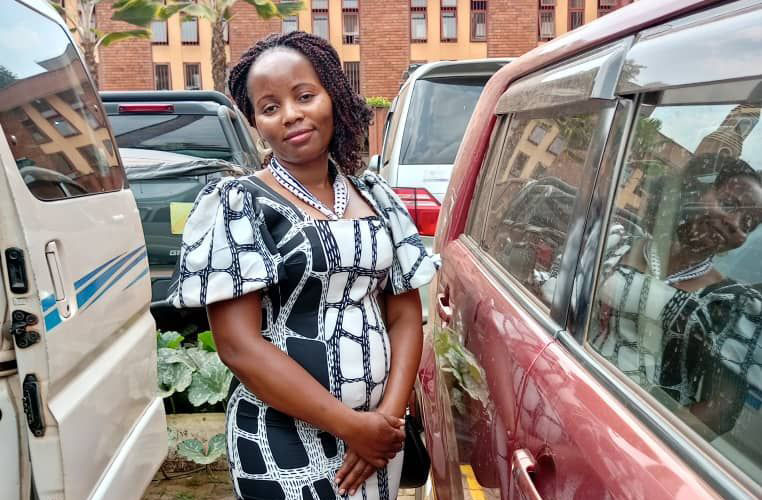How emotional challenges affect learning outcomes in competency-based curriculum
The PhD journey has been both challenging and rewarding for Nakachwa. The biggest challenge she faced was the emotional toll the studies took on her. She says, undertaking a PhD is mentally and emotionally demanding.
Students' learning outcomes are affected by emotional intelligence and resilience.
In 2020, the education ministry rolled out the Competency-Based Curriculum (CBC) for lower secondary education to equip students with practical skills and competencies.
However, some schools still face bottlenecks in implementing this curriculum.
Florence Patricia Nakacwa, a counsellor and education officer specialising in educational psychology, partly blames it on academic and emotional challenges among students and she says; “These negatively affect learning outcomes.”
She realised that many students struggle academically and emotionally. They often lack strategies to cope with setbacks, manage stress, and remain motivated.
This has also been reported in previous research, such as one done by Nwokolo and Ifeanyi (2022), who underscored the role of emotional intelligence in supporting students’ ability to overcome academic difficulties.
In a bid to find a lasting solution to the above problems, in August 2022, Nakachwa enrolled for a Doctor of Philosophy (PhD) in educational psychology with a focus on students’ academic resilience, emotional intelligence, and competence-based learning.
She is expected to graduate on October 25, 2025, at Nkumba University.
In her research on selected schools in Mukono and Kayunga districts, she sought to understand how students’ ability to cope with academic challenges (resilience) and their level of emotional intelligence influence their learning outcomes within the competence-based learning framework.
Nakachwa realised that students’ adaptive help-seeking skills, their ability to seek guidance when needed and their emotional responses play a crucial role in how well they navigate academic challenges.
Growing up in a context where resilience, emotional awareness and seeking support were essential, she says, “I personally understand how these factors can transform learning outcomes.”
Nakachwa came up with the SARIIPAR model that guides teachers, school administrators, and policymakers in designing interventions that enhance student perseverance, competence, and socio-emotional skills. This she says, prepares students for lifelong learning and national development.
Her study also recommends that the education ministry, in collaboration with the National Curriculum Development Centre (NCDC) and teacher training institutions, should integrate strategies for academic perseverance into the CBC curriculum. These, include goal-setting, self-monitoring, and delayed gratification, to enhance learners’ endurance.
She also advocates for establishing structured support systems, peer mentorship, collaborative learning, and safe help-seeking spaces to encourage adaptive academic help-seeking.
In the same way, schools should promote emotional regulation through mindfulness, journaling, and emotional literacy. They should also embed emotional intelligence (EI) training in curricula and teacher preparation programs to develop self-awareness, empathy, and social skills, which are critical for resilience.
“The MoES should adopt the SARIIPAR Model as a guiding framework to strengthen students’ sustainable academic resilience within competency-based learning environments,” she says.
Florence Patricia Nakacwa
Challenges and how she overcame them
The PhD journey has been both challenging and rewarding for Nakachwa. The biggest challenge she faced was the emotional toll the studies took on her. She says, undertaking a PhD is mentally and emotionally demanding.
There were moments of self-doubt and anxiety, especially when facing complex research tasks or delays. But she leaned on family, mentors, colleagues and prayer to navigate through.
In addition, she practised stress-relief techniques such as mindfulness and regular breaks.
Similarly, funding a PhD independently was a constant challenge. However, she managed with careful budgeting and prioritising essential expenses.
Nakachwa also had to juggle research tasks with teaching responsibilities, family commitments, and personal life, which all required discipline and time management.
She created structured schedules, set strict deadlines for each chapter, and minimised distractions to maintain steady progress.
She also appreciates God for being her guiding light, Nkumba University, which has been her academic home for the past three years, plus her family and supervisors, Dr Kiyingi Frank Pio and Dr Kasujja JohnPaul, for their invaluable guidance and support.
Prospects
Ten years to come, Nakachwa envisions leading evidence-based interventions that improve students’ academic performance, particularly through competence-based learning programmes, emotional intelligence development workshops and resilience-building initiatives.
She also hopes to mentor young researchers and educators, helping them to navigate the challenges of academia and enhancing a culture of resilience, innovation, and lifelong learning.
Education background
Nakachwa went to the Rev. John Foundation School for her primary education before joining Stella Maris Secondary School for her O levels and Bukulula Girls Secondary School for her A levels.
Thereafter, she did a Diploma in Education at Kyambogo University in 2005, followed by a Bachelor of Education at Makerere University. Between 2012-2014, Nakachwa pursued a Bachelor of Guidance and Counselling at Kyambogo University.
The following year, she embarked on Master's of Child and Youth Development at the Uganda Christian University (UCU).
A word to PHD aspirants
“Be prepared for a journey that is both challenging but deeply rewarding,” she says. A PhD requires resilience, patience, and discipline. You will face moments of doubt, heavy workloads, and sometimes slow progress but these are all part of the growth process.
She recommends planning and organising: Break your research into manageable tasks, set realistic timelines, and stick to them. Also, build a strong network of mentors, peers, and colleagues who can guide, motivate, and provide constructive feedback.
It’s also important to take care of your mental and physical well-being. Regular breaks, hobbies, and time with family are essential to maintain focus.
Always remember why you started. Let your passion and the potential impact of your research drive you forward.